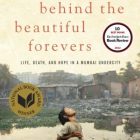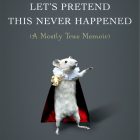Don’t Just Read It – Help Me Write It
Over the next couple of days, we ask you to join us in a literary experiment. Our test subject is Megan Mayhew Bergman, the lovely author of Birds of a Lesser Paradise: Stories and former contributor to an issue of Ploughshares, our Ploughshares Solos series, and this very blog. In this partnership between Medium and Ploughshares, Megan will explore her creative process, but a critical part of this process is your feedback! Read on… – Andrea Martucci
There are many ways to invite readers into your work. I have thrown it blindly into the world, flung it onto the Internet, hoping for the best. I have slyly, or not so slyly, talked it up at dinner parties. I’ve stood behind a podium, which usually comes up to my nose, and read it to texting-while-listening college students. I’ve given it away for free.
But until now, I’ve never asked readers to become part of my early process. Except for editing, I’ve never given up the wheel, not for a minute.
So when Medium and the literary journal Ploughshares asked me if I’d be willing to participate in an experiment, one in which I would take inspiration from the online community at Medium and let readers weigh in on the direction of a story, I panicked. When I’m writing, I want to drive, from start to finish.
But it doesn’t work to be a control freak about inspiration. Alan Gurganus says writers must be “able-bodied janitors…professional eavesdroppers…all-purpose salvage crews.” And it’s not as though I’ve never browsed a message board for inspiration before, never been inspired by news headlines and stolen conversation. Like most writers, I scavenge and let it in, so I started scanning through Medium’s collections.
I was investigating Advice to Graduates when the idea took hold. I pictured a fidgety young girl sitting at her high school graduation, someone on the cusp of adulthood, on the cusp of real autonomy, an identity in process. And I thought of all the well-intentioned advice—helpful and unhelpful—given to graduates every year.
Do you remember that moment? When the world felt fresh and wide-open to you? You could hear the smart, hard-earned wisdom of others at eighteen, but how did you absorb it? What parts of this wisdom took root inside your head, and how did you use and abuse them? Those were the questions I was asking after reading through the collection, the ones I wanted to struggle with in my story.
With advice and decision points on the brain, I went to what I know: Southern girlhood. Not everyone’s Southern girlhood, and not necessarily mine, but a Southern girlhood in which there was constant pressure to become a particular type of woman, and infinite ways to run from it.
I pictured a girl with good intentions, as so many of us have. I named this girl Emery Dixon, and I imagined her making some bad choices, as so many of us do.
I started with Emery’s graduation, letting her hear some of the good advice posted on Medium. For example, I loved James Clear’s discussion of the two-minute rule and made a mental note to employ it myself: All good habits can be started in two minutes or less. But as a writer, what I really liked about this advice was the way it puts pressure on a character: Act now. Make a choice. Make a good choice. Emery recalls the two-minute rule during the first week of college, and the advice pushes her over the edge toward a habit—a bad one.
This led me to the second part of my assignment: Write the story with a moment of choice in mind, one that realistically could branch out in two directions, and let the readers choose what the decision should be. I liked the idea of a protagonist I could flesh out enough to truly believe that when she comes to a moment of choice, it’s a real moment of choice. That there could be more than one opportunity for her at a crossroads, as there is for each of us in so-called real life. I like the idea of trusting my readers, of empowering you, of giving you a chance to answer these questions: What do you want? What feels right from here? What would satisfy you now?
Basically, I’m inviting you into my process. I want to write this story with you, and talk about the choices we make. Here’s how:
- Read the story, then tell me: Does Emery go to rehab or run away? I’ll post the ending you choose tomorrow. Comment in the margins (click here for Medium writing access if you don’t have it yet), and while you’re at it, tweet at @mayhewbergman (using #EmeryDixon).
- Post any comments or questions you have about the story itself or the technical aspects of writing it. Do you have useful feedback? Questions about writing short stories? A sentence you love? Observations on theme, characterization? I value your thoughts, and I’ll respond to as many of them as I can.
Having an exchange here is a way to honor the messy and beautiful process of creation and the sacred relationship between writer and reader.
With sincere gratitude,
Megan
The Schooling of Emery Dixon
Her childhood memories are reduced to:
…the blinding white shimmer of the brown lake where her family has a house. The thrill of jumping from the dock, anticipating the splash, the rush of water up her nose. A water moccasin easing through the water, blunt snout rising.
…the brownness of Thanksgiving at her grandfather’s farm in Virginia, winding roads plastered with wet leaves. The plague of carsickness, the pungent scent of tobacco in a pipe, the taste of green beans cooked by her grandmother’s maid. Plunging hush puppies into the buttery broth on her plate.
…picking a scab off her sunburned shoulder at the beach, followed by the floral scent of the cold cream her mother applies while talking over her head, a conversation about a neighbor’s marriage she isn’t supposed to understand. Fidelity. The pocket of sand in the crotch of her bathing suit, a silver pouch of grape juice in her hand, a wet chin.
…the moment at the end of a church service where everyone rises to grasp hands, mixing perfumes, jewelry easing down a tanned wrist, the hiss of discarded church bulletins sliding across the floor. The thunk of a dropped hymnal, the muffled ring of a pocketed cell phone, a growling stomach, a note passed to her sister about baked Alaska at the country-club buffet.
…the cold tile of the bathroom floor upon which she sits cross-legged, locked in by a displaced armoire while her cousin, who is supposed to be babysitting her, eases onto her bed with an older man. There is the slim rectangle of light, a gasp, the creak of mattress spring, an entire world.
All this happened before boarding school. Now boarding school is minutes from being over.
Read the rest of this story on Medium. Comment on Medium, or Tweet your comments to us



